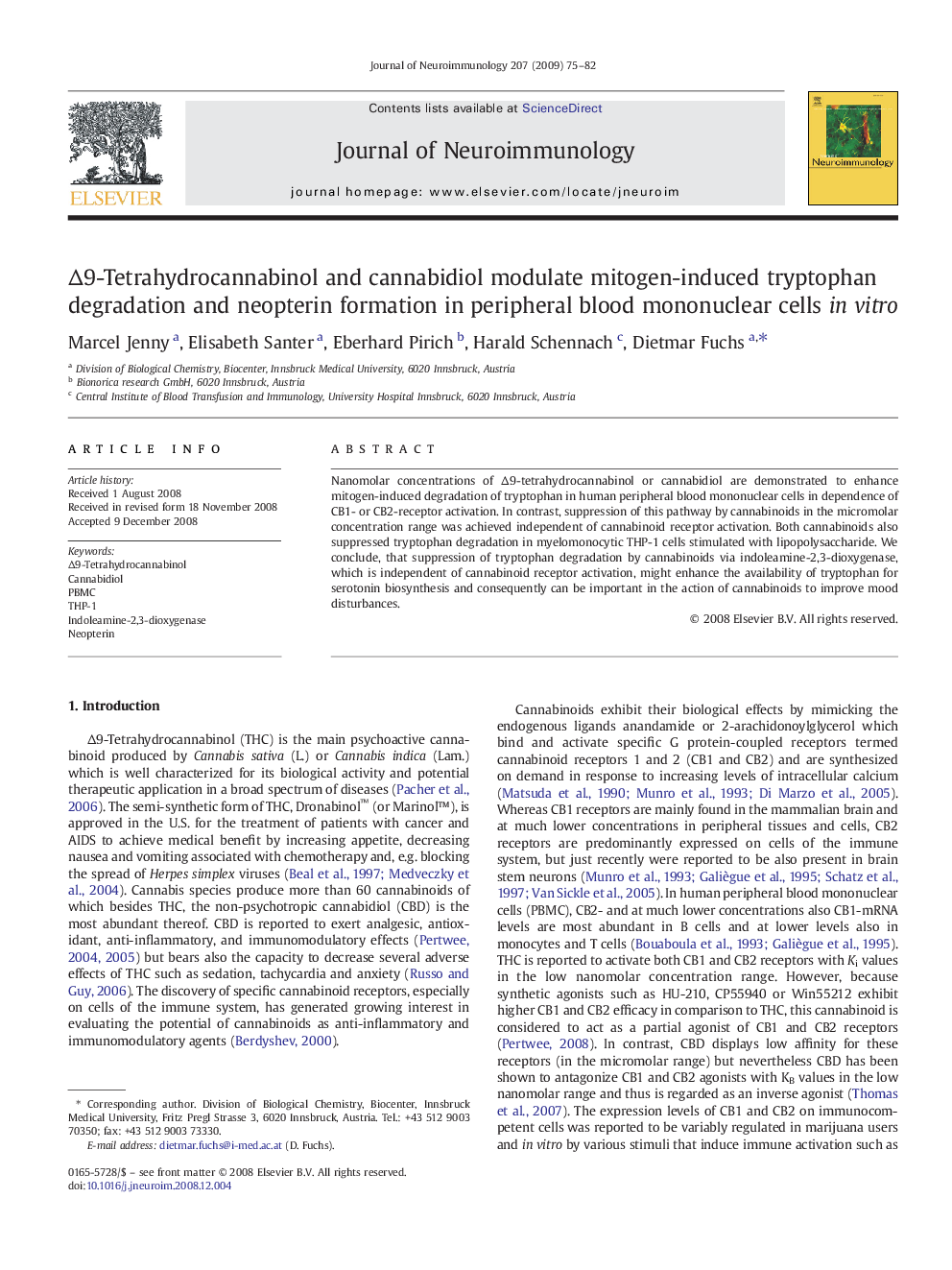| Article ID | Journal | Published Year | Pages | File Type |
|---|---|---|---|---|
| 3065247 | Journal of Neuroimmunology | 2009 | 8 Pages |
Abstract
Nanomolar concentrations of Î9-tetrahydrocannabinol or cannabidiol are demonstrated to enhance mitogen-induced degradation of tryptophan in human peripheral blood mononuclear cells in dependence of CB1- or CB2-receptor activation. In contrast, suppression of this pathway by cannabinoids in the micromolar concentration range was achieved independent of cannabinoid receptor activation. Both cannabinoids also suppressed tryptophan degradation in myelomonocytic THP-1 cells stimulated with lipopolysaccharide. We conclude, that suppression of tryptophan degradation by cannabinoids via indoleamine-2,3-dioxygenase, which is independent of cannabinoid receptor activation, might enhance the availability of tryptophan for serotonin biosynthesis and consequently can be important in the action of cannabinoids to improve mood disturbances.
Related Topics
Life Sciences
Immunology and Microbiology
Immunology
Authors
Marcel Jenny, Elisabeth Santer, Eberhard Pirich, Harald Schennach, Dietmar Fuchs,
